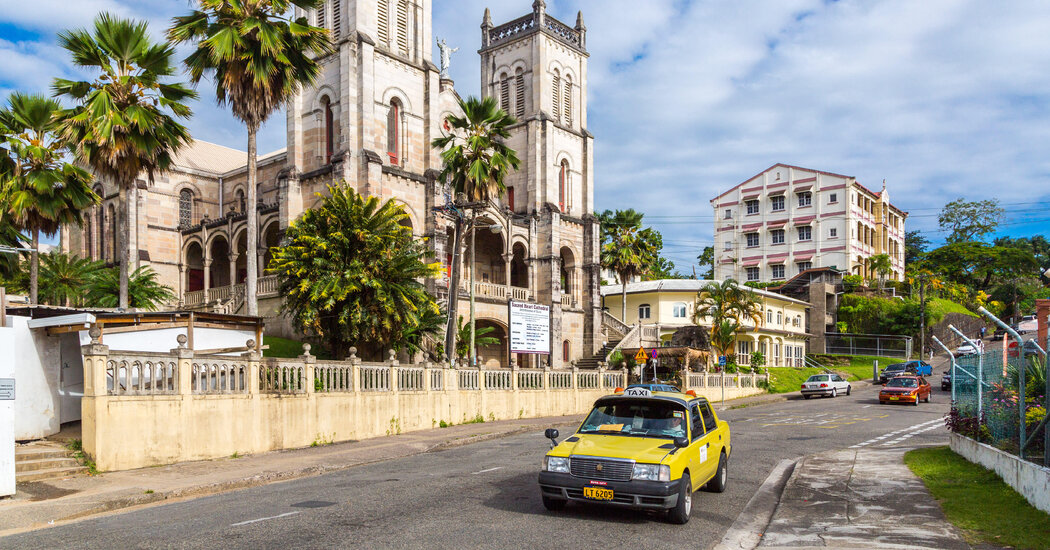A couple of days later, I drank kava with the owners of Mana Coffee Kava Bar. Kava is a root that is dried, pounded and then soaked in water to produce a ritual beverage typically drunk on special occasions but also consumed more frequently by those who enjoy its mellowing effects.
Most kava bars are somewhat sordid, male-dominated establishments, with loud sound systems and metal gates meant to bar drunks or thieves from entry. Mana radically alters that formula, creating a clean and comfortable space where women and men come together to drink kava, coffee, beer and cocktails. Next to our party was a group of traditionally dressed Melanesians who were conducting a business meeting with their European colleagues. There was a multigenerational family whose older members were drinking kava with their supper.
Traditionally everyone in a group scoops kava from a large wooden bowl into a shared vessel, called a bilo, and then drinks from that same cup. At Mana each person had a separate bilo, which was filled with a ladle, so as not to contaminate the bowl. A small group of people gathered around our wooden bowl to slurp grog, as kava is also known, and to reminisce.
An older man downed the bitter compound in one gulp, as you are meant to do, and explained why there used to be many more kava bars in Suva. Until the latter half of the last century, he said, iTaukei and Indo-Fijians were not allowed to purchase or consume alcohol. So kava bars, which often relied on the beauty and the alluring singing voices of their waitresses to draw customers, became an alternative to the European-only bars from which locals were excluded.
On my final day in the city I traveled to CAS, the newly opened Centre for the Arts, Suva, where I met one of its founders, Nakita Irvin, 36. CAS was hosting an exhibit in a warehouse owned by Ms. Irvin’s grandfather, which had been repurposed as a gallery. Its first exhibit, “Suva, Shifting Landscapes,” had opened just a few days before, showcasing the work of young, local street photographers documenting their hometown. The image that stayed with me, shot by a rapper/photographer named VISUALICE, is of a woman in a black hijab walking in front of a dark background into which she almost disappears; engraved next to her, on the left side of the frame, are the words “Public Land Sales on This Spot 1880,” a reference to an early initiative by the British to privatize Fijian land.
Click Here to Read the Full Original Article at NYT > Travel…
